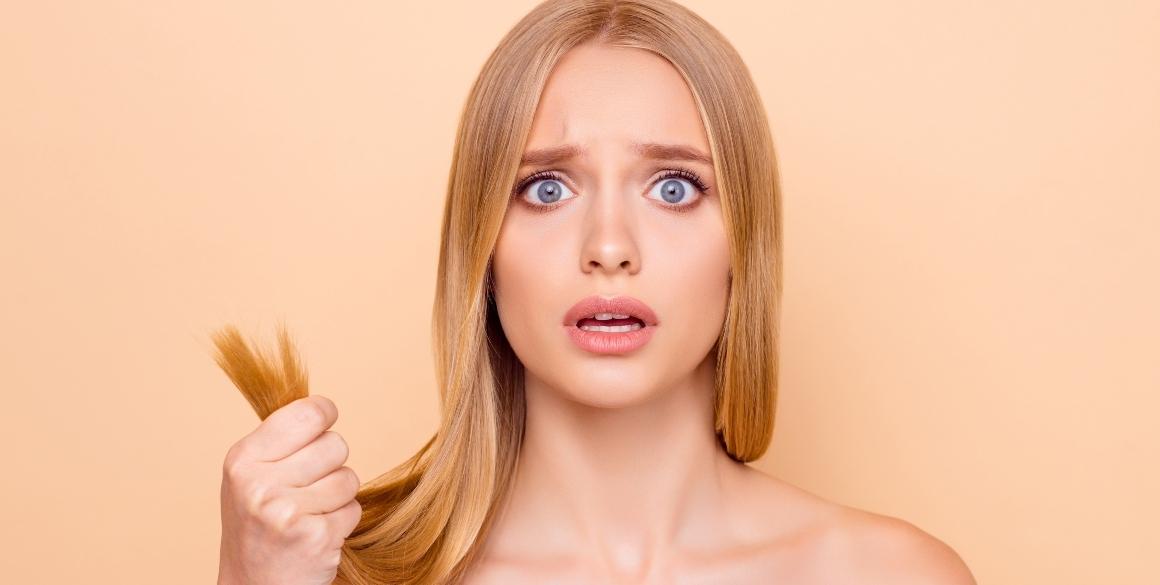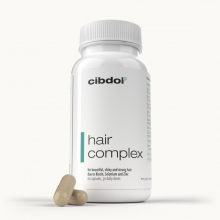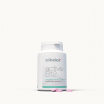Can low b12 deficiency cause hair loss?
Published:
Hair loss is a distressing condition that affects millions of people. While genetics and aging are common causes, one major yet overlooked contributor is vitamin B12 deficiency. Read on to learn how low B12 levels could be causing your hair to thin and fall out.
Contents:
- What Role Does Vitamin B12 Play in Hair Growth?
- What Are the Signs of Vitamin B12 Deficiency?
- How Does Vitamin B12 Deficiency Cause Hair Loss?
- What Are Good Vitamin B12 Levels for Healthy Hair?
- What Causes Vitamin B12 Deficiency?
- What Foods Are Rich in Vitamin B12?
- Should You Take a Vitamin B12 Supplement for Hair Loss?
- Take Charge of Your Hair Health
- Can low b12 deficiency cause hair loss?
- Does low b12 deficiency affect hair follicles?
- Is there a link between vitamin D deficiency and hair loss?
- Can low levels of vitamin D cause hair loss?
- Can low vitamin B12 levels cause hair loss?
- What are some causes of hair loss?
- Is female pattern hair loss related to vitamin deficiencies?
- Can vitamin deficiencies lead to severe hair loss?
- Does vitamin B12 deficiency affect hair density?
- How does vitamin B12 deficiency impact hair?

Losing 50-100 hairs per day is normal. But when your hair starts falling out in clumps or your scalp becomes visibly thin, it signals a problem. Excess shedding and thinning hair can destroy your self-confidence and appearance. So what causes hair loss in otherwise healthy individuals? Here are some of the most common reasons:
- Genetics - Male and female pattern baldness is linked to genetics and aging.
- Stress - Physical and emotional stress causes excess cortisol, which interrupts normal hair growth cycles.
- Hormonal changes - Thyroid disorders, pregnancy, and menopause can all trigger hair loss in women.
- Nutritional deficiencies - Not getting enough protein, iron, zinc and vitamins leads to weak hair.
- Medications - Blood thinners, antidepressants, and cholesterol drugs may cause hair shedding.
- Autoimmune disorders - Conditions like alopecia areata cause patchy bald spots.
- Harsh hair care - Too much coloring, blowdrying, styling damages the follicles.
However, one sneaky offender that often goes undetected is vitamin B12 deficiency. Keep reading to understand how inadequate B12 can contribute to hair loss.
What Role Does Vitamin B12 Play in Hair Growth?
Vitamin B12 is an essential nutrient that keeps the body functioning well. It helps form healthy red blood cells, nerve cells, and DNA. B12 also plays a vital role in hair growth:
- B12 helps hair follicles produce new hair strands. It assists the follicles through the multiple cycles of growth (anagen), regression (catagen), and resting (telogen).
- It nourishes hair follicles for optimal growth. B12 delivers oxygen and nutrients to the scalp for strong, healthy hair.
- It may prevent hair shedding. Some research indicates B12 supplements can decrease hair loss.
- It creates vital red blood cells. Red blood cells carry oxygen throughout the body to nourish the hair follicles.
In short, getting adequate vitamin B12 is crucial for robust hair growth. When levels fall, hair growth suffers. Next, let's explore how B12 deficiency harms the hair.
What Are the Signs of Vitamin B12 Deficiency?
Vitamin B12 deficiency occurs when the body does not get enough of this essential nutrient from food or supplements. What are some signs that your vitamin B12 levels might be too low?
- Extreme fatigue and weakness
- Numbness or tingling in hands and feet
- Shortness of breath and dizziness
- Poor memory and confusion
- Depression, mood changes, irritability
- Pale skin, easy bruising or bleeding
- Frequent infections due to low white blood cells
- Loss of appetite, weight loss
- Diarrhea or constipation
- Hair loss, thinning hair, balding
Many of these deficiency symptoms are vague and overlap with other conditions. Hair shedding may be the only noticeable red flag of low B12 for some people. Let's explore the connections between B12 levels and hair in more detail.
How Does Vitamin B12 Deficiency Cause Hair Loss?
There are several ways that inadequate vitamin B12 disrupts healthy hair growth:
- It impairs red blood cell production. Red blood cells supply oxygen and nutrients to the hair follicles. When B12 levels get low, fewer red blood cells can form, depriving the scalp of nourishment essential for hair growth. Over time, this can trigger hair thinning and shedding.
- It may hinder hair cell regeneration. Some research indicates B12 is involved in the hair follicles' production of new hair cells. Insufficient B12 could slow down cell regeneration, reducing hair volume.
- It may contribute to anemia. One of the main roles of B12 is creating healthy red blood cells. When B12 is deficient, it can lead to anemia - low red blood cell supply. Anemia starves the hair follicles of oxygen and causes shedding.
- It causes high levels of homocysteine. B12 helps convert the amino acid homocysteine into other compounds. When B12 is low, homocysteine builds up in the bloodstream. High homocysteine levels are linked to hair loss and reduced hair thickness.
In summary, when the intricate hair growth cycle is disrupted due to vitamin B12 deficiency, the result is progressive thinning, decreased volume, and excess shedding of hair. It's imperative to catch low B12 early before the damage becomes irreversible.
What Are Good Vitamin B12 Levels for Healthy Hair?
So how can you know if your vitamin B12 levels are optimal for hair health? The standard reference range for blood levels of B12 is:
- Deficient: Under 200 picograms/milliliter
- Low: 200 to 300 pg/mL
- Ideal: 400 to 900 pg/mL
- High: Over 900 pg/mL
However, symptoms of deficiency may start well before levels become critically low. Many integrative medicine doctors recommend a level of 500 pg/mL or higher for robust hair regrowth. Levels below 400 pg/mL can contribute to accelerated hair shedding in those susceptible.
Have your B12 checked if you are experiencing hair thinning for no apparent reason. Don't assume it's just genetics. B12 deficiency is more common than you may think.
What Causes Vitamin B12 Deficiency?
Vitamin B12 deficiency has many causes, including:
- Pernicious anemia. This autoimmune disease causes poor absorption of B12 from foods.
- Gastrointestinal disorders. Conditions affecting the stomach, small intestine or pancreas can impair B12 absorption.
- Surgeries. Procedures like gastric bypass or bowel resection surgery may lead to B12 deficiency.
- Medications. Drugs like antacids and diabetes drugs interfere with B12 absorption.
- Poor nutrition. Vegans and vegetarians may become deficient if not taking supplements.
- Aging. Stomach acid production decreases with age, reducing B12 absorption.
- Heavy alcohol use. Alcohol impairs the ability to absorb and use B12 properly.
B12 deficiency is a common but overlooked reason for unexplained hair loss. Ask your doctor to test your B12 levels. Addressing any deficiency early is crucial to stop hair loss and stimulate regrowth.
What Foods Are Rich in Vitamin B12?
We get B12 from animal foods and fortified processed foods. Here are some top food sources of B12:
- Beef liver - 1,175 mcg per 100 grams
- Salmon - 9.9 mcg per 100 grams
- Tuna - 8.7 mcg per can
- Beef - 5.4 mcg per 100 grams
- Eggs - 1.3 mcg per large egg
- Milk - 1.2 mcg per cup
- Yogurt - 1.1 mcg per cup
- Chicken - 0.3 mcg per 100 grams
- Fortified cereal - Around 6 mcg per serving
For hair health, aim for 2.4 mcg of B12 daily from food sources or supplements. If relying on foods alone, include a few servings of meat, fish, eggs and dairy. Vegans must take B12 supplements.
Should You Take a Vitamin B12 Supplement for Hair Loss?
If your blood tests confirm vitamin B12 deficiency, absolutely start supplementing right away. Look for a high-quality B12 supplement containing at least 1000 mcg of B12 in the active methylcobalamin and adenosylcobalamin forms.
The body can only absorb a small percentage of B12 at once. So, it's best to take supplements daily or weekly to keep levels high. Ask your doctor for the appropriate supplemental B12 regimen based on the severity of your deficiency.
With treatment, hair shedding should improve within a few months as B12 levels normalize. However, significant hair regrowth can take 6 months or more. Be patient, stick with your treatment protocol, and monitor your B12 levels periodically.
Take Charge of Your Hair Health
In conclusion, vitamin B12 deficiency is a hidden culprit behind thinning hair and excessive shedding in many people. Left untreated, low B12 causes progressive miniaturization and bald patches. Check your B12 status if you have hair loss without another explanation. Correcting any deficiency through diet and supplements can stop shedding and promote new growth. Don't write off hair loss as just a genetic inevitability. With proper nutrition and care, you can maintain a healthy head of hair for life.
Key Takeaways:
- Vitamin B12 is essential for healthy hair follicles and robust hair growth. Deficiency causes thinning and shedding.
- Symptoms like fatigue, numbness, and hair loss may indicate low B12 levels. Have your blood levels tested.
- Ask for the active methylcobalamin and adenosylcobalamin forms of B12 supplements.
- Normalize B12 levels to stop hair loss. Regrowth may take months, so be patient.
- Eat B12 foods like meat, eggs, dairy and fortified cereals. Vegans should supplement.
Don't let vitamin B12 deficiency sabotage your hair. Get tested, treat any deficiency, and take charge of your hair health!
Can low b12 deficiency cause hair loss?
Yes, low B12 deficiency can contribute to hair loss.
Does low b12 deficiency affect hair follicles?
Yes, low B12 deficiency can affect the hair follicles and contribute to hair loss.
Is there a link between vitamin D deficiency and hair loss?
Yes, there is a link between vitamin D deficiency and hair loss.
Can low levels of vitamin D cause hair loss?
Yes, low levels of vitamin D can be a cause of hair loss.
Can low vitamin B12 levels cause hair loss?
Yes, low levels of vitamin B12 can lead to hair loss.
What are some causes of hair loss?
Vitamin deficiencies, including low levels of vitamin B12 and vitamin D, can be a cause of hair loss.
Is female pattern hair loss related to vitamin deficiencies?
Female pattern hair loss can be associated with vitamin and mineral deficiencies.
Can vitamin deficiencies lead to severe hair loss?
Yes, vitamin deficiencies, including B12 deficiency, can lead to severe hair loss.
Does vitamin B12 deficiency affect hair density?
Yes, vitamin B12 deficiency can affect hair density.
How does vitamin B12 deficiency impact hair?
Vitamin B12 deficiency may lead to hair loss and affect the health of hair follicles.











